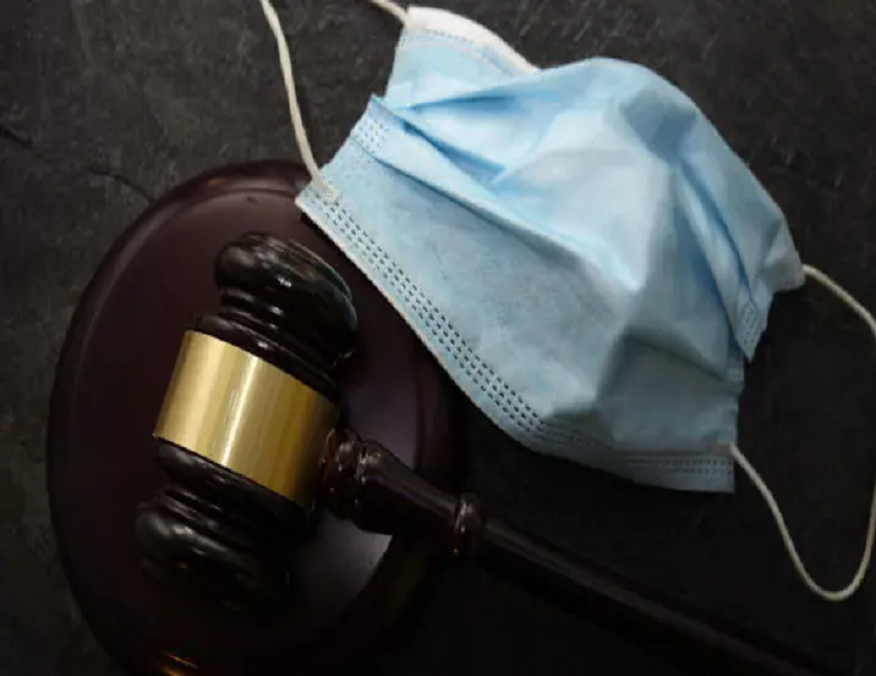Shoulder pain is a common complaint that affects millions of people around the world. It can be caused by a variety of factors, such as injuries, arthritis, and repetitive strain. However, in recent times, shoulder pain has become a cause for concern for many people after receiving a vaccination. Reports of shoulder pain after vaccination have increased significantly, prompting many to take legal action through shoulder pain lawsuits. In this article, we will discuss the importance of shoulder pain awareness, the causes of shoulder pain after vaccination, and what you can do to make a difference in advocating for shoulder pain awareness.
The Importance of Shoulder Pain Awareness
Shoulder pain is a debilitating condition that can significantly impact a person’s quality of life. It can limit movement, cause chronic pain, and make everyday activities difficult to perform. Moreover, shoulder pain can affect people of all ages and backgrounds, making it an issue that requires attention and awareness.
The COVID-19 pandemic has brought about a renewed focus on vaccines and their safety. With the rollout of vaccines, there has been a surge in reports of shoulder pain after vaccination. This has led to increased awareness of the issue and the need for more research to understand the causes and potential long-term effects of this condition.
Shoulder Pain After Vaccination
Shoulder pain after vaccination is a common side effect that occurs in some people. It is often caused by the administration of the vaccine into the deltoid muscle, which is located in the upper arm. The deltoid muscle is responsible for lifting and rotating the arm, and any injury or trauma to this muscle can result in shoulder pain.
The pain associated with shoulder pain after vaccination can range from mild to severe and can last for several weeks or even months. In some cases, the pain can become chronic, affecting a person’s ability to perform everyday activities.
Shoulder Pain Lawsuits
The surge in reports of shoulder pain after vaccination has led to an increase in shoulder pain lawsuits. These lawsuits are filed by individuals who have experienced shoulder pain after receiving a vaccine and seek compensation for their injuries.
Shoulder pain lawsuits allege that the vaccine was improperly administered, resulting in injury to the deltoid muscle and subsequent pain. These lawsuits can be complex and require the expertise of experienced attorneys who specialize in vaccine injury cases.
What You Can Do to Advocate for Shoulder Pain Awareness
Advocating for shoulder pain awareness is essential to raise awareness about this issue and ensure that people receive the appropriate care and treatment for their condition. Here are some ways you can make a difference:
- Share your story
If you have experienced shoulder pain after vaccination, sharing your story can help raise awareness about the issue. You can share your story on social media, vaccine injury support groups, or with advocacy organizations. Your story can help others who are experiencing similar issues feel less alone and more empowered to seek treatment.
- Speak with your healthcare provider
If you are experiencing shoulder pain after vaccination, speaking with your healthcare provider is crucial. Your provider can assess your condition, provide treatment options, and document your injury. This documentation can be essential if you decide to pursue a shoulder pain lawsuit.
- Contact an attorney
If you decide to pursue a shoulder pain lawsuit, it is essential to contact an experienced attorney who specializes in vaccine injury cases. These attorneys can help you navigate the complex legal process and provide guidance on your options for seeking compensation for your injury.
- Advocate for change
Advocacy is essential to raise awareness about shoulder pain after vaccination and to effect change. You can write to your elected officials, contact advocacy organizations, and share information about shoulder pain after vaccination with your community. By advocating for change, you can help ensure that people receive appropriate care and treatment for this condition.
Causes of Shoulder Pain After Vaccination
While the administration of the vaccine into the deltoid muscle is the most common cause of shoulder pain after vaccination, other factors can contribute to the condition. These factors may include previous injuries to the shoulder or underlying medical conditions, such as rotator cuff tears or frozen shoulder. It is important to discuss any pre-existing conditions with your healthcare provider before receiving a vaccine.
Symptoms of Shoulder Pain After Vaccination
The symptoms of shoulder pain after vaccination can vary in severity and duration. The most common symptom is pain or discomfort in the shoulder area, which may be accompanied by stiffness, swelling, or redness. In some cases, the pain may radiate down the arm or limit the range of motion of the shoulder. If you are experiencing any of these symptoms after receiving a vaccine, it is important to speak with your healthcare provider.
Treatment for Shoulder Pain After Vaccination
The treatment for shoulder pain after vaccination may vary depending on the severity of the condition. In most cases, over-the-counter pain relievers, such as ibuprofen or acetaminophen, can help alleviate pain and reduce inflammation. Rest and ice may also be recommended to reduce swelling and promote healing. In some cases, physical therapy or corticosteroid injections may be recommended to help manage the symptoms of shoulder pain.
Preventing Shoulder Pain After Vaccination
While it is not always possible to prevent shoulder pain after vaccination, there are some steps you can take to reduce your risk of developing the condition. These steps may include:
- Informing your healthcare provider of any pre-existing shoulder conditions before receiving a vaccine
- Asking your healthcare provider to use a smaller needle when administering the vaccine
- Requesting that the vaccine be administered in the non-dominant arm if you have a history of shoulder pain or injury on one side
By taking these steps, you can help reduce your risk of developing shoulder pain after vaccination.
Conclusion
Shoulder pain after vaccination is a growing concern, and it is essential to raise awareness about the issue. By sharing your story, speaking with your healthcare provider, contacting an attorney, and advocating for change, you can make a difference in advocating for shoulder pain awareness. It is crucial to receive appropriate care and treatment for this condition, and by working together, we can ensure that people receive the support they need to overcome this debilitating condition. Let us continue to advocate for shoulder pain awareness and work towards a future where everyone can receive the care and support they need.
If you or a loved one is experiencing shoulder pain after vaccination, it is crucial to speak with a healthcare provider and seek legal advice from an experienced attorney. At Vaccine Law, we specialize in handling vaccine injury cases and are here to provide you with the guidance and support you need.


